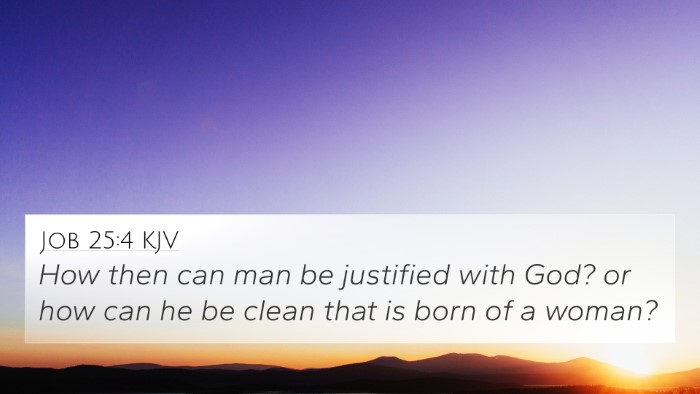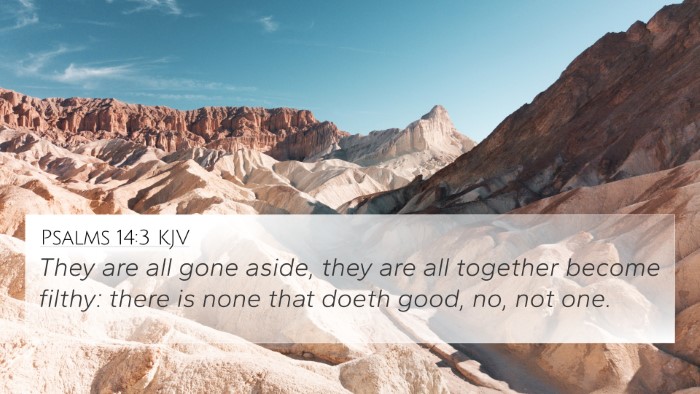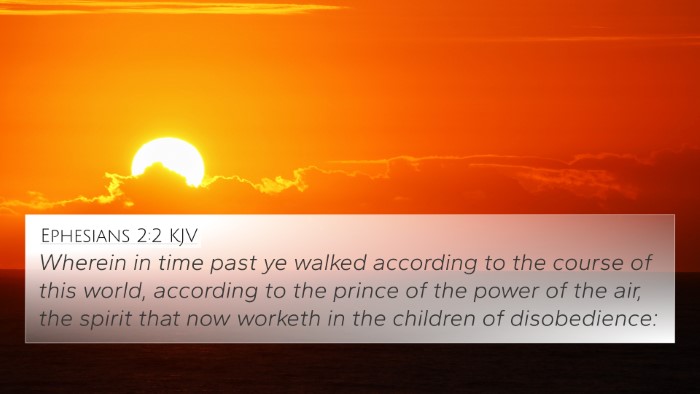This section features a detailed cross-reference designed to enrich your understanding of the Scriptures.
Below, you will find carefully selected verses that echo the themes and teachings related to Job 15:14 KJV. Click on any image to explore detailed analyses of related Bible verses and uncover deeper theological insights.
 Romans 7:18 (KJV) »
Romans 7:18 (KJV) »
For I know that in me (that is, in my flesh,) dwelleth no good thing: for to will is present with me; but how to perform that which is good I find not.
 Job 25:4 (KJV) »
Job 25:4 (KJV) »
How then can man be justified with God? or how can he be clean that is born of a woman?
 1 Kings 8:46 (KJV) »
1 Kings 8:46 (KJV) »
If they sin against thee, (for there is no man that sinneth not,) and thou be angry with them, and deliver them to the enemy, so that they carry them away captives unto the land of the enemy, far or near;
 Psalms 14:3 (KJV) »
Psalms 14:3 (KJV) »
They are all gone aside, they are all together become filthy: there is none that doeth good, no, not one.
 Job 9:2 (KJV) »
Job 9:2 (KJV) »
I know it is so of a truth: but how should man be just with God?
 Ecclesiastes 7:29 (KJV) »
Ecclesiastes 7:29 (KJV) »
Lo, this only have I found, that God hath made man upright; but they have sought out many inventions.
 John 3:6 (KJV) »
John 3:6 (KJV) »
That which is born of the flesh is flesh; and that which is born of the Spirit is spirit.
 2 Chronicles 6:36 (KJV) »
2 Chronicles 6:36 (KJV) »
If they sin against thee, (for there is no man which sinneth not,) and thou be angry with them, and deliver them over before their enemies, and they carry them away captives unto a land far off or near;
 Galatians 3:22 (KJV) »
Galatians 3:22 (KJV) »
But the scripture hath concluded all under sin, that the promise by faith of Jesus Christ might be given to them that believe.
 Ephesians 2:2 (KJV) »
Ephesians 2:2 (KJV) »
Wherein in time past ye walked according to the course of this world, according to the prince of the power of the air, the spirit that now worketh in the children of disobedience:
 1 John 1:8 (KJV) »
1 John 1:8 (KJV) »
If we say that we have no sin, we deceive ourselves, and the truth is not in us.

















